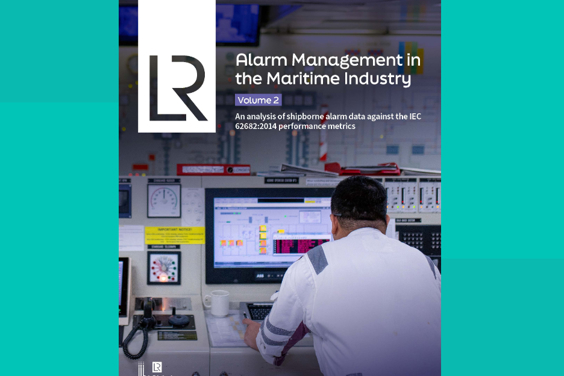Using LPG as a marine fuel could deliver a significant carbon reduction, particularly alongside other emissions reduction and energy saving technologies; helping shipowners comply with more stringent regulations into the next decade.
Fuel for Thought: LPG, a joint report from Lloyd’s Register (LR) and the World Liquid Gas Association (WLGA) has found that the market for dual-fuel LPG engines will continue to grow based on a healthy orderbook, with LPG offering a cleaner, lower carbon emission marine energy source than many alternatives currently available.
According to the report, the use of LPG as a marine fuel combined with technology such as Onboard Carbon Capture and Storage (OCCS) can reduce a vessel’s emissions profile, with the added benefit of reducing the required CO2 storage capacity, due to the lower CO2 emissions from LPG combustion. This allows the technology to work more effectively and offers shipowners a pathway towards future regulatory compliance.
The report, however, outlines that technology readiness will need to improve for LPG to become a viable choice for shipowners and operators looking to transition their fleet to low and zero-carbon vessels. Although well established, the range of available engine technologies will need to be expanded to enable widespread adoption of LPG on multiple vessel types. Currently there is no four-stroke marine engine capable of using LPG, meaning auxiliary engines on vessels would need to be decarbonised through an additional fuel.
A safe bunkering framework must be also developed to encourage uptake of LPG. Regulations remain in their early stages, with interim guidelines recently published by IMO.
Panos Mitrou, Global Gas Segment Director, Lloyd’s Register, said: “The pace and scale of renewable production for LPG remains a critical factor in initiating the wider adoption of LPG as a marine fuel. Supportive energy-saving technologies, as along with potentially maturing onboard carbon capture and storage, will further assist in making LPG a viable low-zero carbon fuel. By ensuring this, LPG could offer attractive operating and capital costs compared to other alternative fuels as shipowners look to decarbonise their fleets in line with more stringent regulations."
Nikos Xydas, World Liquid Gas Association Technical Director said: “LPG stands as a unique and exceptional energy source, pivotal for decarbonising the shipping sector. Stored and transported as a liquid and consumed as a gas, it is well recognised for its lower emission benefits as a marine fuel. With a surge in orders for LPG-fuelled ships, it's clear that LPG's role in the shipping industry is expanding. As the world moves towards deep decarbonisation targets, LPG emerges as an ideal fuel for all vessel types, offering a cleaner alternative fuel today and a pathway for an even cleaner future tomorrow. Its flexibility, low emissions, and cost-effectiveness position LPG as the potential fuel of choice in the shipping sector, paving also the way for low-cost deep-sea decarbonisation with the advent of bio/renewable LPG."














